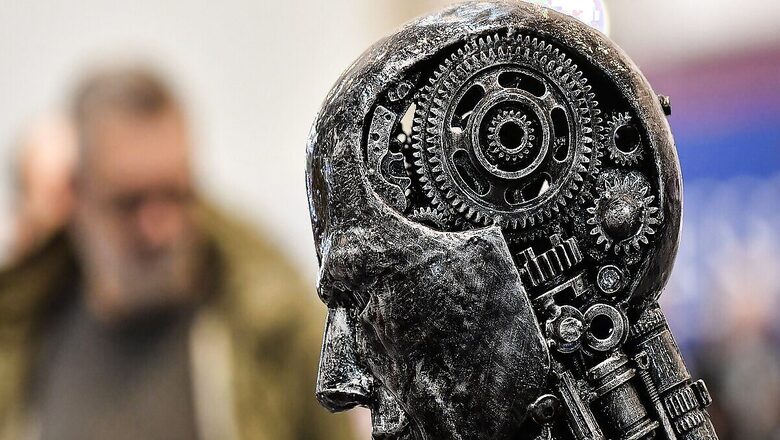
views
IIT Madras’s Centre for Responsible AI, officially inaugurated in April by MoS Rajeev Chandrasekhar, held its maiden workshop on ‘Responsible AI for India’ on Monday to promote the ethical and responsible development of AI-based solutions in the real world.
The research centre, which received $1 million from Google, aims to become a top national and international research hub for both fundamental and applied research in Responsible AI, with a direct effect on implementing AI systems in the Indian ecosystem.
CeRAI’s major goal will be to create high-quality research outputs such as research publications in high-impact journals or conferences, white papers, and patents, among other things. It will aim to provide technical resources in the domain of Responsible AI, such as curated datasets (universal and India-specific), software, toolkits, and so on.
At the inaugural session of the first workshop, Abhishek Singh, Managing Director and CEO at Digital India Corporation, said, “I am sure that the deliberations that will happen today in this workshop and the various panel discussions will go a long way in helping us evolve our framework, our guidelines and our policies for responsible AI.”
It is important that those at the policymaking level and those who are working at the cutting-edge of developing technologies are aware of the risks and challenges that remain while we are using the same technologies for solving societal problems, ensuring access to healthcare, making healthcare more affordable and making education more inclusive and making agriculture more productive, he added.
Furthermore, Singh stated that there is a need for a non-biased and non-discriminatory AI framework as there are unique requirements that need customisation as per the requirements.
Meanwhile, Prof Balaraman Ravindran, Head of the Centre for Responsible AI, said: “AI models need to provide performance guarantees appropriate to the applications they are deployed in. This covers data integrity, privacy, the robustness of decision-making, etc. We need research into developing assurance and risk models for AI systems in different sectors.”
As per IIT, the centre will provide sector-specific recommendations and guidelines for policymakers. With the achieved research outputs, it will help to formulate sector-specific recommendations and guidelines for policymakers and provide all stakeholders with the necessary toolkits for ensuring ethical and responsible management and monitoring of AI systems that are being developed and deployed.
Additionally, CeRAI also intends to provide opportunities for conducting specialised sensitisation or training programmes for all stakeholders to better understand the concerns of ethical and responsible AI. It will host a series of technical events in the form of workshops and conferences on specialised issues of deployable AI systems, emphasising the principles of ethics and responsibility that must be followed.
Moiz Arsiwala, Co-Founder and CTO at WorkIndia, told News18 that CeRAI has the potential to benefit the Indian ecosystem greatly.
He said: “By focusing on responsible and ethical AI deployment, the centre ensures that AI systems are developed and implemented in a manner that respects privacy, transparency, fairness, and accountability.”
“Additionally, with education and skill development, we expect this to significantly impact the blue-collar industry by ensuring enhanced efficiency, reduced manual labour, and a smoother transition for blue-collar workers in the evolving job market,” he noted.
Dr Pardeep Kumar, Pro-Vice Chancellor at Manav Rachna International Institute of Research and Studies (MRIIRS), said: “Responsible AI is an approach that emphasises the ethical and moral considerations in the design, development, and deployment of AI systems.”
According to him, as AI systems are becoming increasingly pervasive in society, there is a growing need for AI systems that are developed and deployed in a responsible manner. Dr Kumar also believes that in the Indian ecosystem, responsible AI can have an immediate impact on the deployment of AI systems.
Similarly, Anil Sinha, CTO of Fibe, stated that the tech sector is undergoing its most major transformation to date, which is being driven by artificial intelligence. It is changing the way we think about and the way we work in the present, he said.
“I’m pleased to see our institution taking the lead in this area since we need to be at the cutting edge of AI innovation. In industries including agriculture, education, industry, and defence, among others, it will contribute to innovation. The opportunities are endless; we must set an example and implement responsible AI practices for the good of all,” he added.




















Comments
0 comment